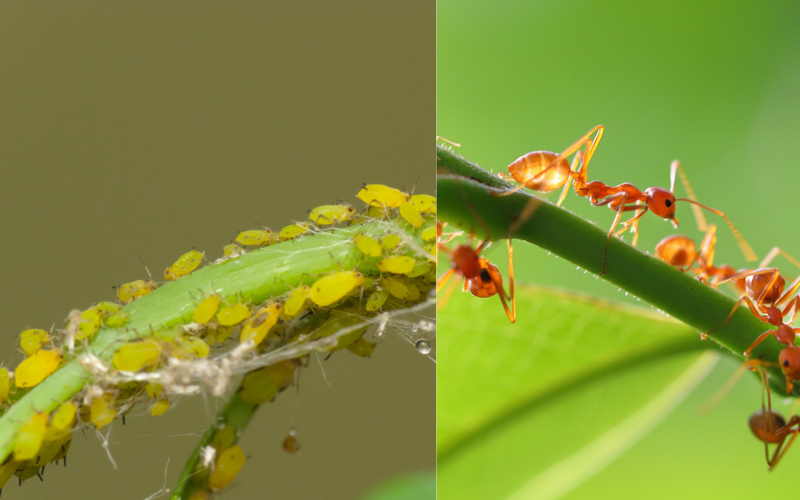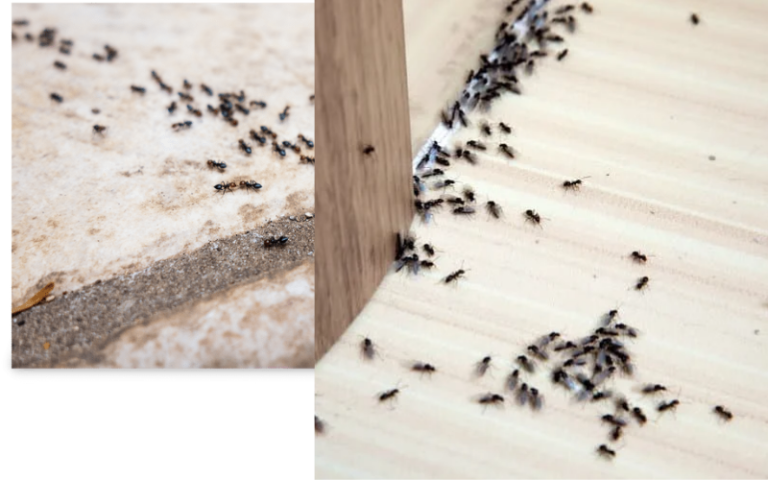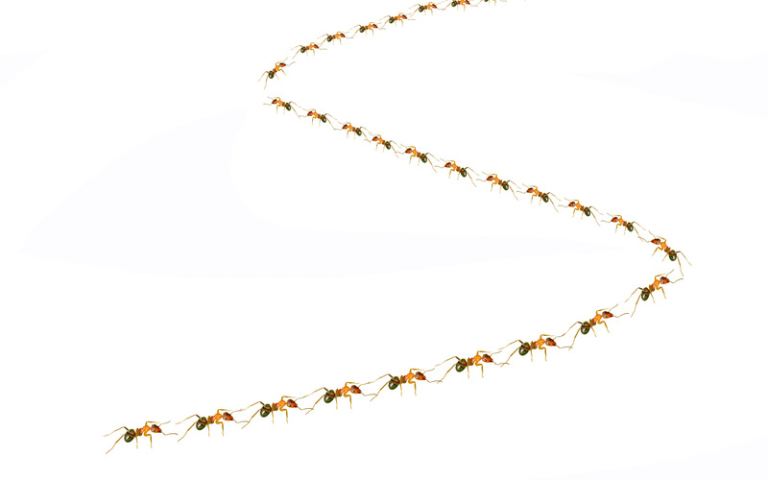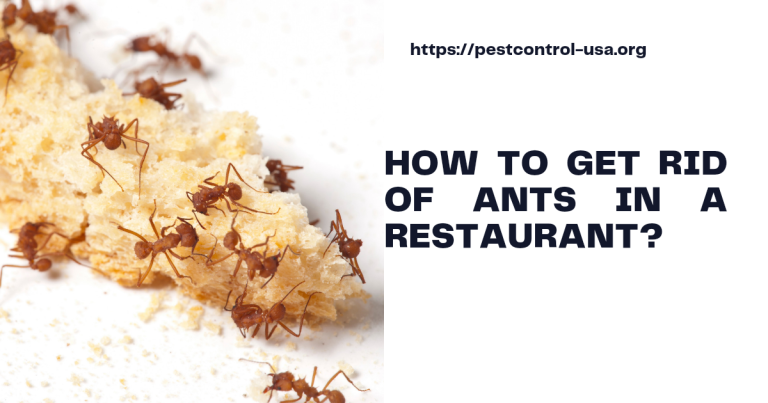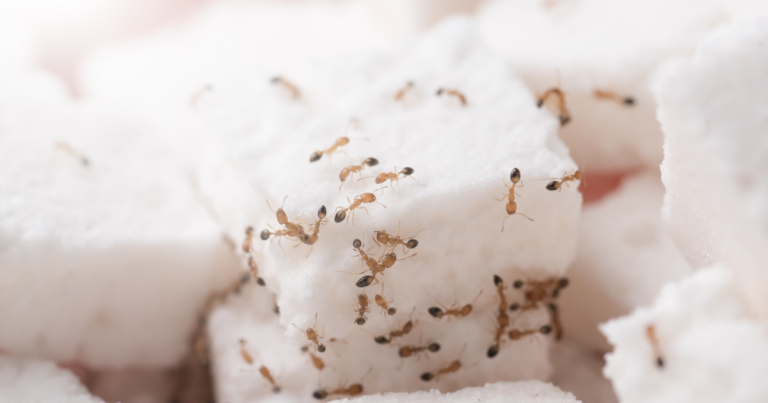Aphids and ants have a unique and symbiotic relationship that has been observed in nature for centuries. Aphids are tiny, plant-sucking insects that are commonly found on the leaves and stems of plants. They feed on the sap of plants, which is high in sugar content, and produce a sugary substance called honeydew as a byproduct.
Ants, on the other hand, are omnivorous insects that feed on a wide variety of food sources, including plant matter and other insects. They are attracted to the honeydew produced by aphids and will often establish a relationship with the aphids in order to have a steady source of food.
In this relationship, the ants will protect and defend the aphids from predators, such as ladybugs and lacewings, in exchange for the honeydew produced by the aphids. The ants will also help to move the aphids to new food sources, as well as groom and clean the aphids in order to keep them healthy.
This relationship is beneficial to both species, as the aphids are protected and able to feed on plants without fear of predators, while the ants have a steady source of food. However, this relationship can also be detrimental to the plants on which the aphids feed, as the aphids can cause significant damage to the plants through their feeding habits.
In addition to the protection provided by the ants, the aphids have also developed other mechanisms to avoid being eaten by predators. Some species of aphids are able to produce chemicals that are toxic to predators, while others are able to change their color to match the color of the plant on which they are feeding.
Conclusion
Overall, the relationship between aphids and ants is an interesting example of symbiosis in nature. While this relationship can be beneficial to both species, it can also have negative effects on the plants on which the aphids feed. It is important for gardeners and farmers to monitor for aphid infestations and take steps to control their populations in order to prevent damage to their plants.

